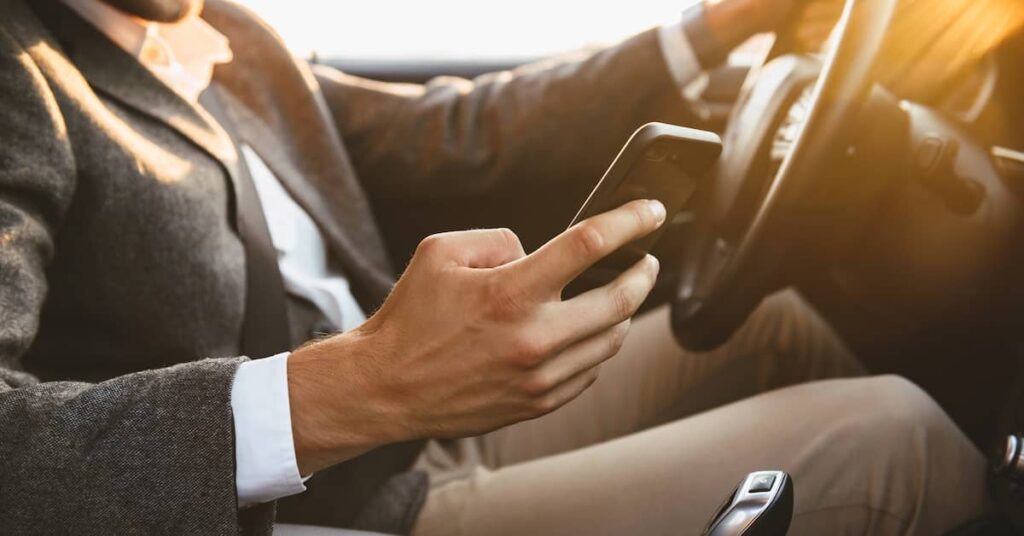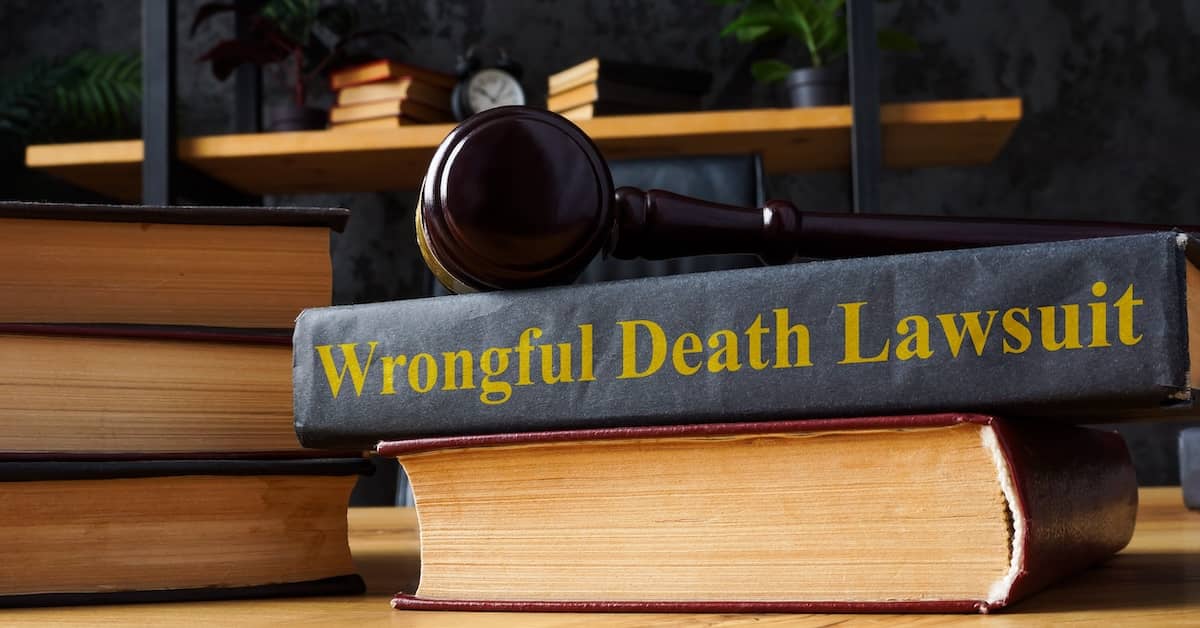
How Do You Prove Distracted Driving?
The dangers of distracted driving are well-known. Unfortunately, far too many motorists let their attention wander from the road, placing themselves and others in danger. If you were injured in a crash and you believe the other driver was not paying attention, a distracted driving accident attorney can help you make a claim.
You may be entitled to compensation for medical bills, lost wages, and other damages. However, the distracted driver’s insurance company will not be keen to compensate you fairly. The Denver car accident lawyers at Burg Simpson can aggressively advocate for a favorable result.
We are Good Lawyers. Changing Lives.® Our team knows what it takes to prepare strong claims against distracted drivers, negotiate fair settlements, and (if necessary) obtain awards at trial.
To discuss your case with a Denver distracted driving accident attorney, call Burg Simpson today at 303-792-5595 to schedule your FREE and confidential case evaluation. Our lawyers serve clients in Denver, Englewood, and throughout Colorado.
What Is Distracted Driving?
The National Highway Traffic Safety Administration (NHTSA) defines distracted driving as “any activity that diverts attention from driving.”
A common misconception is that distracted driving is only about what you are actively looking at, meaning a distraction is about taking your eyes off the road. However, while visual distractions are certainly a form of distracted driving, manual and cognitive distractions also qualify.
- Manual distractions mean taking your hands off the wheel to do something else, such as adjusting your car’s stereo, texting, or eating.
- Cognitive distractions involve taking your attention off the act of driving, such as letting your mind wonder or having a conversation with someone else in the vehicle.
In Colorado, a new law went into effect in January 2025 that bans the use of mobile electronic devices, such as smartphones, while driving. This means that even if you are not actively talking or texting on your phone, it is still illegal to hold or use your phone in any way while operating a vehicle.
What Are 5 Common Examples of Distracted Driving?
Across the three types of distractions – visual, manual, and cognitive – five of the most common forms of distracted driving include:
- Texting or typing on a smartphone
- Talking on the phone
- Eating or drinking
- Talking to other people in your vehicle
- Adjusting your GPS or stereo
Of course, the most dangerous are the activities that distract you in all three ways. This is why texting while driving is so dangerous: your eyes, hands, and mind may be off the road all at once, creating an exceptionally dangerous situation.
Many drivers are able to “get away with it” some of the time. However, the slightest unexpected occurrence, such as a piece of debris in the road or a vehicle farther up the road unexpectedly braking, could result in a serious accident.
How Dangerous Is Distracted Driving?
Distracted driving has proven time and again to be one of the most dangerous driving behaviors. Statistics from CDOT show that more than 700 people in Colorado were killed in distracted driving accidents over a period of 10 years.
The effect of our new hands-free law has made it clear how much safer our roads can be if we drive distracted less. In the first five months of 2025, since the new hands-free law went into effect, inattentive driving crashes dropped 19% from 2024. Accident-related fatalities as a whole fell 11% during the same period.
If you have seen the “Heads Up, Phones Down, Colorado!” messages from CDOT, this is the reason why. Hopefully, the hands-free law will continue to make Colorado roads safer for everyone.
What Is Colorado’s New Hands-Free Law?
As of January 1, 2025, if drivers are found even just holding a phone, they face a fine of $75 for their first offense and get two points on their license. Penalties increase for repeat offenses, though first-time violators can have their charges dismissed if they provide proof of purchase of a hands-free device, such as a Bluetooth headset.
While the use of hands-free devices still technically qualifies as a cognitive distraction, they tend to lead to a lesser degree of distraction than if someone is physically holding the phone while talking on it.
How Do You Prove a Driver Was Distracted?
Central to a successful car accident claim based on distracted driving is proof. The burden of proof in personal injury claims is “preponderance of the evidence.” You need to prove that it is more likely than not that the driver was distracted and that this distraction is what led to the accident.
You do not need to prove conclusively that the driver was texting, talking on the phone, or otherwise distracted for your claim to succeed. However, the evidence must be sufficiently compelling to show that distracted driving was more likely than not the cause.
Read More: Were You Hit by a Distracted Commercial Truck Driver?
What Evidence Is Needed?
Clear and convincing evidence in a distracted driving accident claim may include:
- The other driver’s cell phone records
- Dash cam or traffic camera footage
- Witness testimony
Additional types of evidence that may support claims against a distracted driver include police reports and accident reconstruction models.
Read More: How to Look Up an Accident Report
Ultimately, a distracted driving accident attorney can collect vital evidence on your behalf. They can also provide guidance through the entirety of your claim.
Potential Challenges
Drivers and their insurance companies may rely on the following arguments to dispute liability for a distracted driving crash:
- The driver was not distracted.
OR - Distraction was not the cause of the accident.
For example, they may blame the actions of other drivers or even the weather in an attempt to shift fault and avoid liability. They may also try to lessen their responsibility by using Colorado’s comparative fault rules, which reduce how much compensation can be recovered by how much the plaintiff is at fault for an accident.
Working with a lawyer who can conduct a thorough investigation, gather evidence, build a strong claim, and negotiate effectively is your best chance of fighting these challenges so you can recover the maximum compensation you deserve.
Do I Need a Distracted Driving Accident Attorney?
The reasons for hiring a distracted driving accident attorney are many. Some of the top factors to consider include:
- Experience: An attorney’s experience investigating claims, gathering and preserving evidence, and building strong arguments can be instrumental to winning compensation.
- Skilled negotiation: Insurance adjusters are very good at getting accident victims to accept less compensation than they deserve, or avoiding liability altogether. A good lawyer knows how to rebut their tactics and pursue the settlement you deserve through skilled negotiation.
- Resources: A distracted driving lawyer can take on all of the legwork involved in preparing a claim while you focus on getting better.
- Representation at trial: If the insurer refuses to offer a fair settlement, an attorney can file a lawsuit, present your case at trial, and advocate for the maximum award.
These capabilities can prove invaluable for anyone dealing with the aftermath of a car accident, especially when the law firm does not charge unless and until they win compensation on your behalf. At Burg Simpson, you only pay fees if we obtain a settlement or win your case at trial.
Contact the Team at Burg Simpson Today for a FREE Consultation
Our team has recovered more than $2 billion in compensation for our clients over the past 40+ years. With our vast experience representing car accident victims, our knowledge of Colorado law, and our compassionate approach, we provide injured accident victims with the representation they need and deserve during a difficult time in their lives.
To speak with us about your Denver distracted driving accident, schedule your FREE case evaluation today by calling 303-792-5595 or contacting us online. We look forward to hearing from you!





